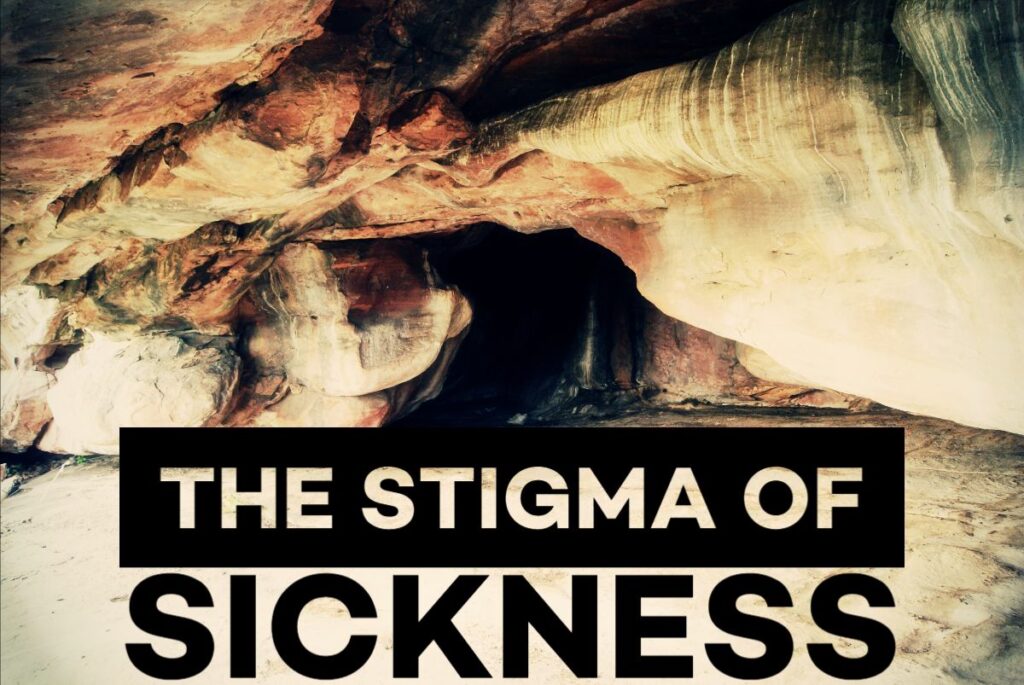
There is a stigma associated with sickness today. Our society has been altered in terms of how we regard the sick and how we deal with sickness when it visits us. Attitudes toward the sick include blaming and shaming them for not being more careful. Out of fear of getting sick ourselves, we divide and isolate from the sick rather than show compassion and care for their needs. We judge them as morally inferior. They must have made a bad choice and are now reaping the consequences. Our society has no shortage of people, who like Job’s friends, have assumed disease is a result of sin and are ready to scold and call for repentance.
It’s no wonder then, that when someone is sick they feel guilt and shame as if they did something wrong. Maybe they should have been more careful. Maybe they got lazy and made poor choices. Maybe they could have done more to protect themselves and others. These kind of mind games make recovering from sickness that much more difficult. Stress and anxiety do damage to our immune system which makes our recovery that much longer.
How did we get here?
Governments around the world have been promising salvation from this virus but can’t deliver. Masking, sanitizer, distancing, lockdowns, restrictions, vaccines have all been employed by governments determined to stop COVID-19. They have all proved to have little effect and yet governments continue to promise that we’re close to getting a handle on things. Of course, when these measures fail to contain a contagious virus there needs to be something or someone to blame. The government is unwilling to concede that their measures are having little effect or that they cannot deliver what they promise and so it is the people not following the rules, the anti-maskers, or the unvaccinated that are driving continued spread, i.e., the “deplorables” of society. So when a person gets sick, maybe they are part of this class of societal scum that are causing this pandemic to continue.
So the blame and shame heaped on the sick is because of false promises of human governments pretending to be God and Savior that continue to promise hope but can’t deliver.
Where do we go from here?
When we understand that God is in control, not man—and certainly not human governments attempting to control a virus—we gain an entirely different outlook. Job came to understand that God is in control of sickness and disease and that God wields such power to teach his people humility and dependence.
When we are sick, we don’t need to blame anyone. Sickness doesn’t just affect the immoral or wicked, but also the holy and righteousness (like Job). Sickness is a reminder that we are weak and frail, and even the smallest of particles—ones we can’t even see or control—can take the strongest out. Sickness is a reminder that we aren’t in control, and that we should trust in the one who is. Sickness is death’s harbinger, reminding us all that we are mortal and will taste death. So let us trust God who is the only one able to deliver from death through Jesus Christ our Lord.
This insight helps us live in these days as well. When we trust God, we recognize that salvation from sickness and death is not promised to us in this life, although it is coming (Revelation 21:4) so we’re not expecting perfect health now. When we trust God we recognize that health and safety are not the most important (Mark 8:36–37) and so we can avoid COVID tunnel vision and serve the sick with compassion rather than fear them. When we trust God we recognize that life is in God’s hands and for all our striving, we can’t add a single hour to our life (Matt 6:27). And no, this doesn’t mean that we should be reckless, but under our sovereign God, we labor as stewards of what he has given to us rather than arrogantly thinking we can control creation as only God can. We trust creation to him and then serve him by serving each other, especially in times of need.
So if you are sick, don’t fall prey to shame and guilt. You did nothing wrong. You can’t control sickness but you can remember Him who controls all things for his purposes and your good.
